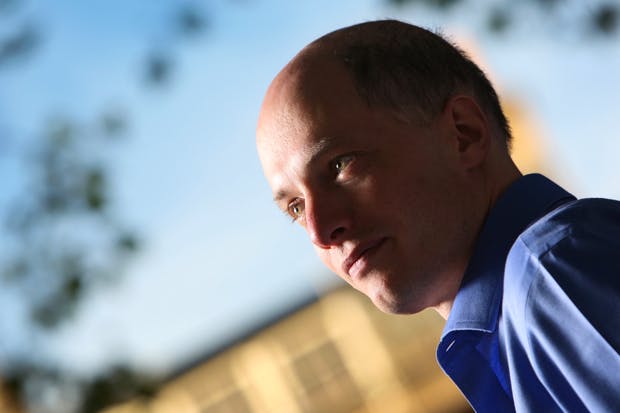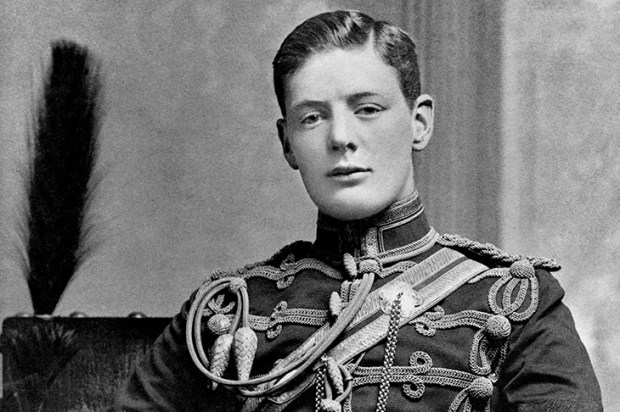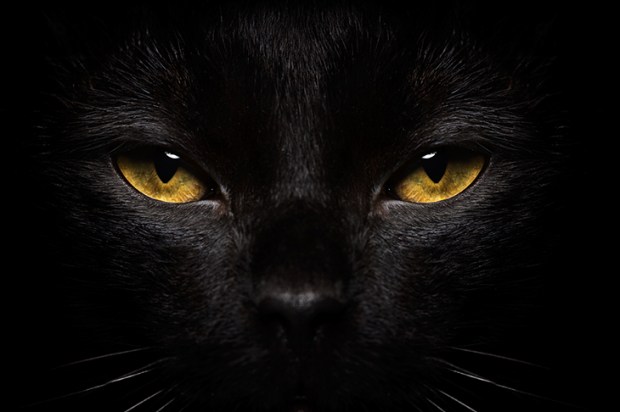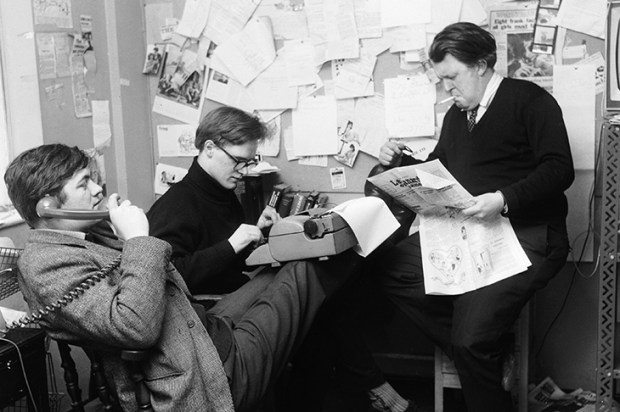Whenever I’m tempted to pretend to be nicer so that fewer people hate me, I remember my old friend Alain de Botton. Alain is a genuinely delightful fellow — charming, considerate, wise, modest — but this has made no difference to the degree with which, in some quarters, he remains intensely loathed.
This saddens me. There are certainly occasions when I find his utopianism naive, twee, mockable. And, yes, I suppose it’s easy to be jealous of a handsome man with a beautiful wife and a comfortable life which seems to involve nothing harder than pondering philosophically, writing bestsellers and being on TV a lot. But for all his faults, I genuinely believe that de Botton is the Montaigne of our age and that those who dismiss him as glib or patronising or sententious aren’t nearly as sophisticated as they think.
Take his new book The News: A User’s Manual which, as one savage review noticed, has been ‘beautifully produced by his publisher to look like a prayer book, misleadingly making you think it must be something to treasure’. But surely what is so annoying about de Botton is also what makes him so brilliant: yes, he is a well-heeled egghead with the leisure to ponder different aspects of life — love, work, travel, architecture, religion — and boil them down to trite-seeming verities. But a) no one else is doing this stuff because none of us has the time and b) the perspective de Botton offers is so utterly different from what you find elsewhere that to read him is to see the world delightfully anew.
Here is a passage I like: ‘The news routinely tantalises us with the promise of drastic change and improvement. It anoints certain politicians as visionaries and expresses confidence that they can fundamentally transform the nation with a few months of attaining office. It breathlessly awaits the arrival of the new head of a central bank, who might liberate the slumbering energies of capitalism. It takes us to conferences and encourages us to believe that the delegates might in three days of horsetrading solve some of the major issues of the globe, relating to economics, African poverty or the warming of the atmosphere. Then everything falls apart.’
Now you could argue that what de Botton is doing here is stating the bleeding obvious. Of course news organisations operate on the ‘build ’em up, knock ’em down’ principle. (Anyone remember the hilarious period when the media declared Gordon Brown a good prime minister?) Of course, every time there’s some new summit like Davos, editors have to lie to us and themselves that it’s not a complete waste of time, for how else can they justify the resources squandered covering it?
But there’s a big difference between having noticed this stuff all your life and actually articulating it in plain English. ‘What oft was thought but ne’er so well expressed’: this, at bottom, is the secret both of de Botton’s success and his infamy. Some people love his elegant simplicity; others feel he’s taking them for fools — after all, if de Botton were really as clever as he’s supposed to be, then it surely ought to be much harder to understand him.
De Botton’s broader point about the news is that though it purports to tell us what is going on in the world, in truth it bombards us with an excess of partial information we are ill-equipped to process and offers us misleading impressions designed rather to provoke fear and rage than to inspire understanding.
For example, he notes: ‘There will be several paedophiliac murderers at work, but there will be tens of millions who don’t favour abusing children and bludgeoning them to death.’ This strays dangerously close to Martyn Lewis ‘Why can’t news be more positive?’ territory. But just because it’s naively utopian doesn’t mean that it’s altogether wrong.
There are lots of things news editors love to focus on that I too wish they wouldn’t. Among them, certainly, are freak incidents of rape and murder; so too are those dreary front-page splashes advertising the government’s latest eye-catching initiatives. I loathe the former because they’re prurient, unedifying and exploitative of private grief; I despise the latter for they are essentially press releases on behalf of administrations whose cynical machinations our media should be holding to account, not tacitly endorsing.
Indeed, as the perfect emblem of the way our supposedly free and frank media holds our politicians to account but not really, I give you the MPs’ expenses scandal. Yes, of course I see why the papers went big on it — the duck house! The bath plug! — but ultimately, I’d argue, it did far more harm than good.
A year before the scandal, let us not forget, all but seven MPs voted for the 2008 Climate Change Act, which committed Britain to legally binding carbon emissions targets at the cost of £18 billion a year till 2050. The damage this ill-considered legislation will inflict is almost incalculable — affecting everything from industrial competitiveness to the number of old people who freeze to death in fuel poverty. Yet where was the serious media scrutiny or criticism which might have prevented it?
Almost nowhere. Imagine if, instead of ridiculing our MPs’ pitiful, shabby attempts to bump up their feeble earnings, we had instead encouraged them to vote themselves a pay rise up to, say, £1 million a year — on condition that from henceforward they did their jobs properly. On this basis, the Climate Change Act would never have happened and at a stroke we would have saved ourselves at least £17 billion a year.
See what I mean about news priorities?
Got something to add? Join the discussion and comment below.
Get 10 issues for just $10
Subscribe to The Spectator Australia today for the next 10 magazine issues, plus full online access, for just $10.















Comments
Don't miss out
Join the conversation with other Spectator Australia readers. Subscribe to leave a comment.
SUBSCRIBEAlready a subscriber? Log in